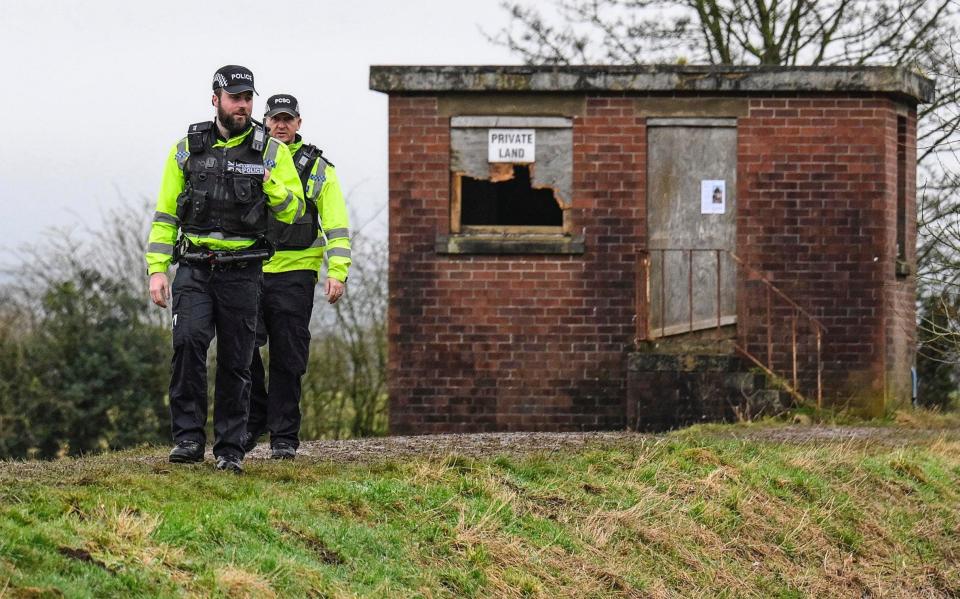Nicola Bulley police force launches internal review as Rishi Sunak voices ‘concern’

Lancashire Constabulary said on Friday that it will launch an internal review of its search for Nicola Bulley as Rishi Sunak expressed “concern” over its decision to release private information about her.
The force said it had put a formal progress review in the diary, to be led by Detective Chief Superintendent Pauline Stables, its head of crime, but has resisted calls to bring in an external force to scrutinise its handling of the case.
Guidelines say forces should carry out reviews between 21 and 42 days after an inquiry has started, depending on the circumstances, to ensure that no investigative opportunities have been overlooked. Although officers are not required to bring an external force in, they often choose to do so.
It came as Ms Bulley’s father said her family feel they are “no further on” in finding the missing 45-year-old after three weeks, and that “every day is a struggle”.
On Friday Louise Cunningham, Ms Bulley’s sister, issued a heartfelt message to her. Alongside a photograph of the two enjoying a day out with their mother Dot, 72, Ms Cunningham wrote on Facebook: “Three weeks today without you home. We all miss you so much, time to come home.”
The Metropolitan Police Commissioner said Scotland Yard was ready to step in to assist Lancashire Constabulary as the search for the missing mother of two moved into a fourth week.
Speaking 21 days after Ms Bulley, 45, disappeared while walking her dog in the village of St Michael’s on Wyre in Lancashire, Sir Mark Rowley said his force was “of course” standing by to assist.
The intervention of Britain’s top policeman came amid continued anger over details of Ms Bulley’s struggles with alcohol and the impact of the menopause being released by Lancashire Constabulary as part of its appeal for information about her disappearance.
Mr Sunak, the Prime Minister, has said he is “concerned” about how private information about Ms Bulley was put into the public domain by police.
He spoke after Suella Braverman, the Home Secretary, demanded that the force explain its decision to reveal the details. On Friday, Mrs Braverman raised her concerns directly in a phone call with Lancashire’s chief constable and his senior team over whether police were justified to share such information.
Speaking to the BBC, Mr Sunak said: “Like her I was concerned that that private information was put into the public domain, and I believe that the police are looking at how that happened in the investigation. Obviously my thoughts are with Nicola’s friends and family, and the focus now must be on continuing to try and find her.”
Sir Mark said any decision to release such information had to be made with great care, adding: “Any time you’re releasing personal information, you need to be very, very cautious. Time will tell whether that was the right call in that circumstance.”
Sir Keir Starmer, the Labour leader and a former director of public prosecutions, said: “I was very surprised to see what the police had put out there. I was not sure why that degree of personal information was necessary.
“If there is, in the fullness of time, a good justification, then so be it – but I think most people would be very uncomfortable. I certainly felt uncomfortable with that private information being put in the public domain.”
Lancashire Constabulary has referred itself to the Independent Office for Police Conduct over contact it had with Ms Bulley over a concern for welfare just over two weeks before she vanished.

Following the disclosures about Ms Bulley’s history, the Information Commissioner is to investigate whether the force breached data laws by revealing her private details.
John Edwards, the commissioner, said: “Data protection law exists to ensure people’s personal information is used properly and fairly. This includes ensuring personal details are not disclosed inappropriately.”
He said the force must be able to demonstrate its reasons for making the decision and how it related to a “legitimate police objective”.
Mr Edwards added that his office has “a range of sanctions” at its disposal to respond to such a breach, from sanctions and warnings to “the ability to fine organisations through a breach of the law”.
He said: “They need to be able to explain to my office in the first instance how the connection between that use or disclosure of the personal information and that legitimate law enforcement objective.”
Dame Vera Baird, the former victims’ commissioner for England and Wales, said the decision by police to divulge Ms Bulley’s struggles with the menopause and alcohol was “as sexist as it comes,” and it was highly unlikely that such details would have been released had she been a man.

 Yahoo News
Yahoo News 
